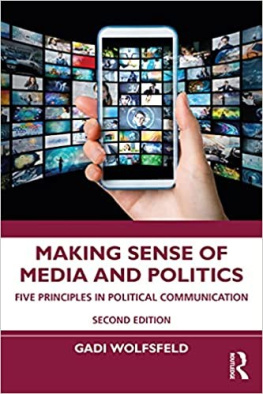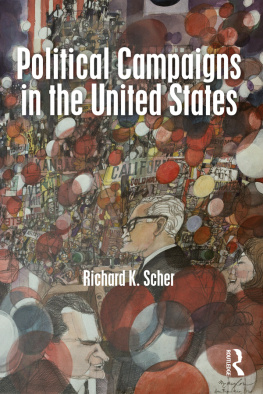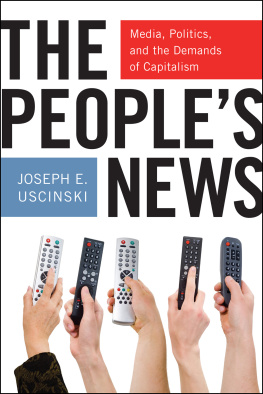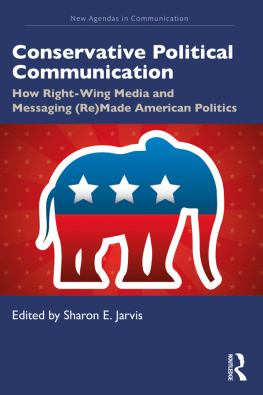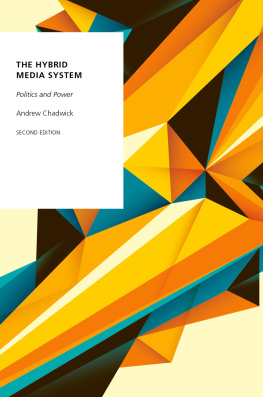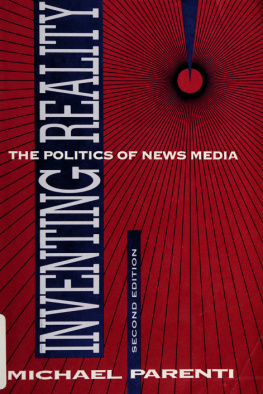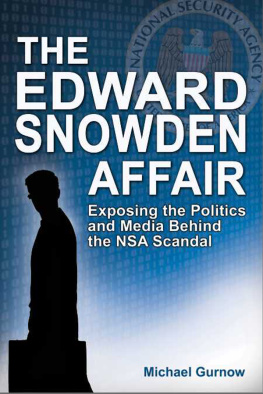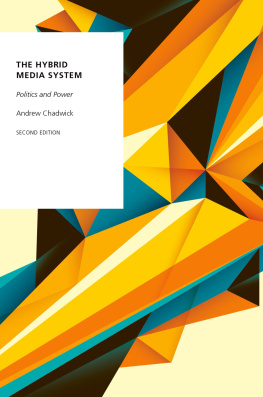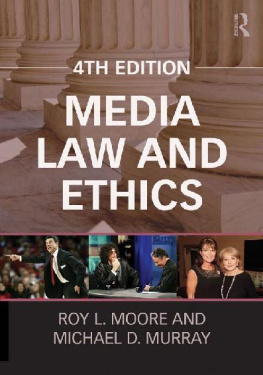ACKNOWLEDGMENTS
This book originated at The New Press in collaboration with Colin Robinson, who helped immeasurably in getting the project off the ground. When Colin moved on from The New Press, I felt anything but orphaned, as I benefited greatly from the razor-sharp insights of Andy Hsiao, Marc Favreau, and Furaha Norton. I also send special thanks to my extremely capable research assistants, Caitlin Esch and Vincent Rossmeier, both of whom are well on their way to becoming first-rate journalists.
Through their intellectual encouragement and engagement, not to mention their friendship, my comrades at the Brooklyn Rail have contributed mightily to this book. I must first thank Williams Cole, a talented media critic and creator in his own right, for our ongoing dialogue about the news. I also bounced around many ideas with the trenchant minds of Christian Parenti, Donald Breckenridge, Heather Rogers, Meghan McDermott, Doug Cordell, Jason Flores-Williams, and Brian Carreira. In addition to the work of our many other editors, writers, and staff, the Rail owes its continued existence to the incomparable Phong Bui, our publisher and tireless champion. It is my good fortune to collaborate with all of these folks. The same can be said of my students and colleagues at Metropolitan College, where I have particularly benefited from the support of Ruth Lugo, Clyde Griffin, and Heide Hlawaty.
As fellow followers of the New Blue Media, my many friends in Brooklyn, San Francisco, and elsewhere have also helped sustain this project. The list includes: Diego Baraona, J. Scott Burgeson, Wayne De Jager, Peter Doolittle, Bob Dowling, Albert Gutierrez, Howard Harrington, Jason Duvalle Jones, Thomas Master, Gary Merowsky, Ray Nedzel, Eulas Pizarro, Leslie Quint, Alan Reeder, Jonas Salganik, Maddie Soglin, Rebecca Titcomb, and Andrew Wood. Last but not least, I would like to thank Emily DeVoti. Despite some uncertainties in the direction of our relationship over the last few years, we have remained best friends. And for that, most of all, I am truly grateful.
T. Hamm
Brooklyn, New York
January 2008
INTRODUCTION
THE RISE OF THE NEW BLUE MEDIA
The administration of George W. Bush will be remembered for many cataclysmic actionsa disastrous war in Iraq, a criminally inept response to Hurricane Katrina, and a massive upward redistribution of the nations wealth. Another recurring, but less analyzed, feature of the Bush years is the ongoing attempt by the White House to sabotage the American political news media. In order to advance its agenda, both foreign and domestic, Bush insiders have planted explosive information with sympathetic reporters (Robert Novak and Judith Miller); hired a former male prostitute (Jeff Gannon) to pose as a White House reporter and ask sympathetic questions to the president; and paid an actual syndicated columnist (Armstrong Williams) to write friendly pieces about its education policies. The administration also produced its own news segments/propaganda on issues like Social Security for distribution on local TV stations across the country. Meanwhile, nearly all of the nations leading broadcast and print outlets promulgated the White Houses specious rationale for invading Iraq, the alleged presence of WMD. When that charge was shown to be false, the network most sympathetic to the administration, Fox News, never mentioned this essential fact. During Bushs second term, that same network also saw one of its lead reporters, Tony Snow, become White House press secretary; and when Dick Cheney sought to explain exactly how he managed to shoot a hunting partner in the face, he sat down with Fox Newss lead anchor, Brit Hume. Ascendant during the Clinton era, right-wing media figures have become omnipresent throughout the Bush years, especially as cable news talk shows have gained a more prominent place on the political landscape. It is yet another depressing sign of the times that Bill OReilly, Sean Hannity, Ann Coulter, and many other right-wing zealots have flourished in the Bush era.
This book is not about the growth of the right-wing political media, however. Nor is it another entry into the debate over whether the mainstream media have a liberal bias, which, as Eric Alterman, Jeff Cohen and others have demonstrated, is a false charge that the right strategically puts forth. Instead, this study examines the growth andfor the most partcommercial success of self-consciously left and liberal political media creators during the Bush years. I have chosen to call this constellation of new outlets the New Blue Media. Both explicitlyas seen in the examples of MoveOn, the Daily Kosled liberal blogosphere, Michael Moore, and Air Americaand implicitlyas illustrated by the Onion, The Daily Show, and The Colbert Reportall of these new media creators are seeking to move the Democratic Party to the left. All of these players have been frustrated by the conservative campaigns launched by Al Gore in 2000 and John Kerry in 2004; and, with the exception of Air Americas original figurehead, Al Franken, all have repeatedly attacked both the Republicans and the Democrats for the Iraq debacle. At the same time, these new outlets have mounted a counterattack against the right-wing political media. Either via direct confrontation or satirical send-up, the New Blue Media have effectively taken off the gloves and fought back, against both the right and the Foxification of mainstream television news coverage. To be certain, more established left-leaning media outlets such as the Nation, Harpers, and the Pacifica Network have also been at the forefront of the battle against the Bush regime. But the focus here is on the ways in which the new forms of liberal media have helped change the presentation and direction of contemporary progressive politics.
The main stylistic approaches of the New Blue Mediasatirical, didactic, and activistall fit into long-standing traditions in American political life. The roster of successful political satirists includes many of the great figures in American letters, a list headed by Benjamin Franklin, Mark Twain, Ambrose Bierce, H.L. Mencken, and Dorothy Parker. Founded in 1876, Puck, a weekly magazine of political cartoons, showed that there was a steady audience for humorous but pointed critiques of current affairs. Twain and Bierce both deflated the pretensions of the Gilded Age, while, from opposite ends of the spectrum, Mencken and Parker tore apart the Harding-Coolidge-Hoover era. Both black minstrel songs and the blues often contained powerful send-ups of slavery and Jim Crow, while the early years of Hollywood produced such classic political spoofs as the Marx Brothers Duck Soup (1933) and Chaplins Modern Times (1936) and The Great Dictator (1940). A precedent of sorts was also set during the early years of the New Deal, when Will Rogers, the folksy, enormously popular radio and print satirist, refrained from criticizing FDR, whom he admired. The next generation of leading political satirists often crossed various lines between humor and partisanship, often at their own peril. As historian Stephen Kercher shows, in his 1960 campaign JFK embraced the leading liberal comedian Mort Sahl. But after JFKs victory, Sahl turned his humor back toward the president, who responded by blackballing Sahl. The early 1960s nevertheless became the golden age of American left-wing political satire, the hour of comedians Lenny Bruce and Dick Gregory, cartoonist Jules Feiffer, and Stanley Kubricks


